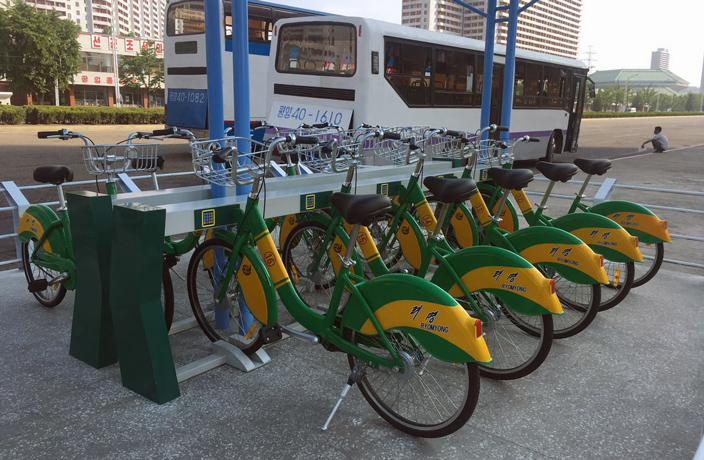
Executive Summary – What’s Happening In The Bike Share World?
Bike Share news keep filling newspapers and social media all over Europe (and the globe), often presenting contradictory views. Cities that openly embrace new mobility solutions, others that (over?)react to unannounced deployment of bicycles in their streets, and everything in-between. This Executive Summary will create order out of the chaos, for our valued readers.
News from the free-floating world
In the last few months, oBike from Singapore (one of the biggest operators in the world together with ofo and Mobike) expanded its services to many European cities, including Madrid, Vienna, Munich, Brussels and London - generating big and small complaints over social media and newspapers. In the meantime, ofo announced it intends to expand their its services to Paris and Lyon by the end of 2017, while a new actor, Gobee.bike from Honk Kong, recently deployed its their bicycles in Lille and are planning to ride in Paris as soon as possible. Mobike continues its roll-out in the UK, with new schemes planned for London and New Castle. Additionally, Urbo, our Dublin-based PEBSS member, worked with one of London's councils and launched in early September, releasing a few days after an interesting - and reassuring - note on its their approach to data collection and privacy. Less reassuring are the news coming from Florence, Italy: users seem to love the Mobike bikes, but too many of them are misbehaving, parking the bicycles out of the racks, in the middle of the street, in the Arno river or even... on running trains. The municipality is reportedly worried, since problems started arising with "only" 2,000 bikes available and the agreements are to reach 8,000 in a few months.
Another rumor that shook the bike share world is the reported possible merger of the two Chinese giants ofo and Mobike, as noted by Bloomberg. The two companies denied being in talks, but also confirmed they are seeking way to end their costly cash burning battles.
Cities' responses
As expected, not all cities are responding in the same way. We already reported about San Francisco, that banned BlueGoGo from its streets (but very recently have been considering giving permission to Jump, a new e-bike share operator), and about Amsterdam, that banned all free-floating bike share schemes (thus keeping only the Dutch OV-Fiets). Even 13 Chinese cities realised that leaving the market completely free is not a viable option anymore, and decided to stop any further deployment of bicycles on their territories.
Yet other cities have been more open to innovation. London is welcoming several systems, but in a controlled way: it issued a specific Code of Practice that every new operator must follow, guaranteeing a smooth deployment of their services and a collaborative framework for mobility operators.
And we as PEBSS will host a hands-on workshop for cities on November 20-21, in Brussels, to help them develop similar strategies and enforce their own will to manage and take advantage of these schemes.
Station-based schemes are not dead
 But all these new, free-floating systems should not lead you to think that the well-known, dock-based schemes will disappear. The JCDecaux-Smoove handover in Paris is still going on, showcasing the potential economic growth cycling can unlock: 300 new jobs were recently announced by Smoove to manage the capital's scheme. Lyon also renovated its 15-years contract with JCDecaux, introducing a new model and a quantity of e-bikes on the streets.
But all these new, free-floating systems should not lead you to think that the well-known, dock-based schemes will disappear. The JCDecaux-Smoove handover in Paris is still going on, showcasing the potential economic growth cycling can unlock: 300 new jobs were recently announced by Smoove to manage the capital's scheme. Lyon also renovated its 15-years contract with JCDecaux, introducing a new model and a quantity of e-bikes on the streets.
Lisbon started a pilot with e-bikes as well, in partnership with the Portuguese bike manufacturer Orbita and Lisboa Horizontal, an app to show users the least hilly route to their destination. The world sector's leaders are now competing for the new tender in Barcelona for a 10-years and 200 million euro contract. Bidders are Bonopark (in the consortium that runs the BiciMAD scheme, in Madrid), PBSC (PEBSS members from Canada), the French Smoove (also a PEBSS member), the smaller Sharebike and Hourbike together, ClearChannel and finally the German PEBSS member nextbike.
Curious the news about North Korea launching its first bike share scheme to alleviate the impacts of the fuel shortage it is facing. Although, the price might scare many potential users off: at a 40 won per minute fee (1200 won per 30 minutes=around 7,7 euro), it is much less convenient than the 5 won metro ticket.
Regions:
News category:
Network/Project Involved:
Contact the author
Recent news!
Upcoming events
Contact Us
Avenue des Arts, 7-8
Postal address: Rue de la Charité, 22
1210 Brussels, Belgium









